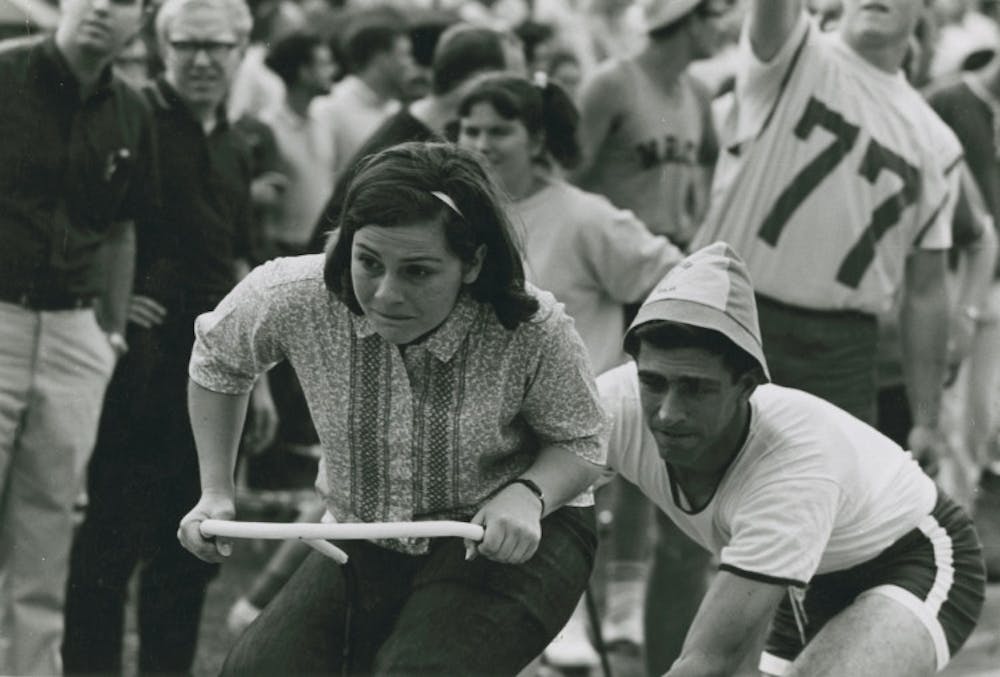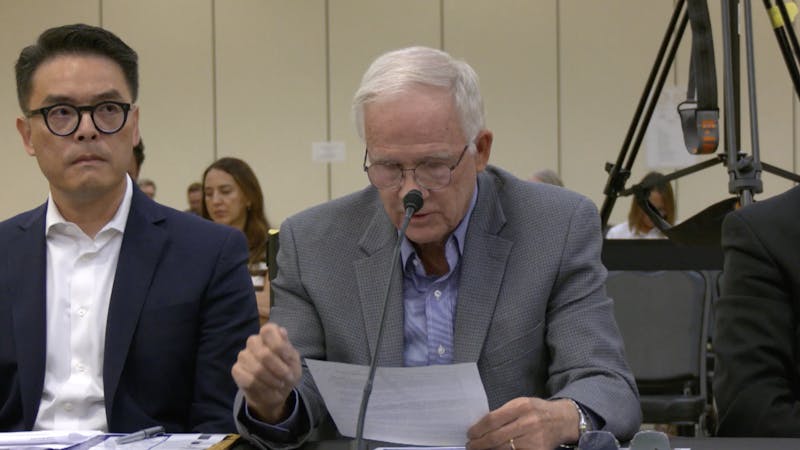‘A significant milestone’: Women carve out spaces at Rice

When the then-Rice Institute welcomed its first matriculating class, Nellie Mills was among its ranks. Mills, the first woman to matriculate at Rice, was one of the few women attending Rice in its early days. While students were largely male, Rice was established as a coeducational institution, admitting both male and female students from its inception — though admission was restricted to white Texas residents.
It was the summer of 1929, three years after the first Rice doctoral degree was granted, when the Houston Chronicle announced that Rice had awarded its first Ph.D. to a woman: May Hickey. Hickey was a remarkable student beyond the degrees she earned. From Rice alone, she earned her bachelor’s degree, a masters in mathematics and physics and, later, her Ph.D. in mathematics.
“This is the best application ever sent out from this school,” Hickey’s high school principal wrote as part of her undergraduate application. “I predict that May Hickey will establish a record at Rice Institute.”
He was right. Hickey had a transcript of almost entirely 1’s — the highest grade offered at the time, in an age before grade inflation when that grade was notoriously difficult to achieve. As an undergraduate student, she was a teaching assistant in the math, English and German departments. Two years in a row, she was awarded the Graham Baker Award for best student at Rice. She went on to teach undergraduates mathematics and physics while earning her master’s and Ph.D.
Despite their academic success, women still faced a number of social restrictions. According to Edna Otuomagie’s online exhibit exploring the decisions Rice made concerning gender, sex and race between 1957 and 1970, freshmen girls were required to wear formal clothing, such as the pinafore dress, in public spaces. For the first part of Rice’s history, women were not offered on-campus housing and were required to leave campus by 5 p.m. until the establishment of residential colleges in 1957, when Jones College, the first women’s residential college and on-campus housing, was established.
“In 1954, President William Houston convened the Committee on Student Housing ‘to study the student housing problem, decide if a residential college system would be feasible, and if so … plan that system.’” Otuomagie wrote. “On this council of 19 people sat only four women at one time … These women, with the help of trustee J. Newton Rayzor, pushed for on-campus living arrangements for the female students.”
However, with Jones College being the only college for women on campus, “only a small fraction” of women in the student body were able to live on campus, according to Otuomagie. Additionally, women still faced strict dress codes and an early curfew. Despite this, “women living on campus represented a significant milestone,” according to John B. Boles, author of “A University so Conceived: A Brief History of Rice University.”
Women’s participation in Rice’s social life was often curtailed by restrictions placed on them, but they made their own spaces at Rice. From establishing literary societies that were the center of female social life at Rice to playing the first Powderpuff game in 1950, women at Rice fought for their own Rice traditions.
For students who enjoy the women’s race during Beer Bike, thank the women at Brown College, the second female residential college at Rice, who fought for the “Tea-Trike” race in 1966.
“Modeled after the famed Beer Bike competition that was, at the time, only allowed for men, the women championed their right to participate in more reckless festivities during Rondelet weekend,” Otuomagie wrote, “The intention for the race was to allow women to have more freedom in intercollegiate competition while forcing them to retain their ‘feminine’ qualities through such things as chugging tea out of flower-covered beer cans, not allowing their posteriors to raise up from the tricycle seat, and having a 1 a.m. curfew.”
Finally, in 1974, Beer Bike included a women’s race, and in 1975, the first woman competed in the men’s race.
Flash forward to 1994, and the Rice community created the foundation for a women’s center — the start of what we now know as the Rice Women’s Resource Center, recently voted in as a Blanket Tax Organization.
Be a part of herstory. That’s what the ad in the December 1995 issue of the Thresher prompts readers to do. “Rice Women’s Resource Center,” it reads. “Look for more details next semester.” Readers were also invited to nominate someone for an “Outstanding Rice Woman” award, which was presented at the grand opening of the center in February 1996.
Caroline Schaeffer, who planned a women’s conference that also marked the opening of the women’s resource center in 1996, said that the center hoped “to address the needs of the entire community, not only women.” The center planned to collaborate with several groups on campus, including Students Organized Against Rape, the Graduate Women’s Interest Network, Advance and the SA Commission for Women. Additionally, the RWRC would provide counseling, books and a TV and video collection.
“The center’s mission statement describes it as a ‘central location for people and groups with an interest in issues facing women,’” the Thresher wrote in 1996. “Women’s Center Director Mona Hicks said the center will serve as a clearing house for other programs rather than replace them.”
While Mona Hicks said she hoped the center would expand in the few years after 1996 to become a “gender center” and “embrace a wider set of questions about gender relations,” the Women’s Resource Center is still the Women’s Resource Center today. However, her broader vision of expanding conversations about gender and sexuality were realized. Campus established the Center for the Study of Women, Gender, and Sexuality in 2006, an outgrowth of the program of the same name.
“Schaeffer explained that the Women’s Center began as ‘the vision of a lot of people,’” the Thresher wrote in 1996. “She added that it has become a reality in less than two years because of the support of so many people.”
More from The Rice Thresher

Rice announces Chao College as 12th residential college
Rice announced that the 12th residential college will be named Ting Tsung and Wei Fong Chao College Aug. 19. The college, set to open in fall 2026, will contain nearly 300 on-campus beds.
Dining access fund announced following on-campus unlimited meal swipes
Rice announced new food assistance programs on Tuesday to account for the controversial change in the on-campus meal swipe plan.

Rice disaster prediction model discussed at hearing on deadly Central Texas floods
The House and Senate Select Committees on Disaster Preparedness and Flooding held a hearing on July 31 in Kerrville to address the deadly July 4 flooding in Central Texas. The flooding along the banks of the Guadalupe River killed 108 people, including 37 children. In the charged hearing, Texas lawmakers and flood survivors criticized the local response to the disaster.


Please note All comments are eligible for publication by The Rice Thresher.